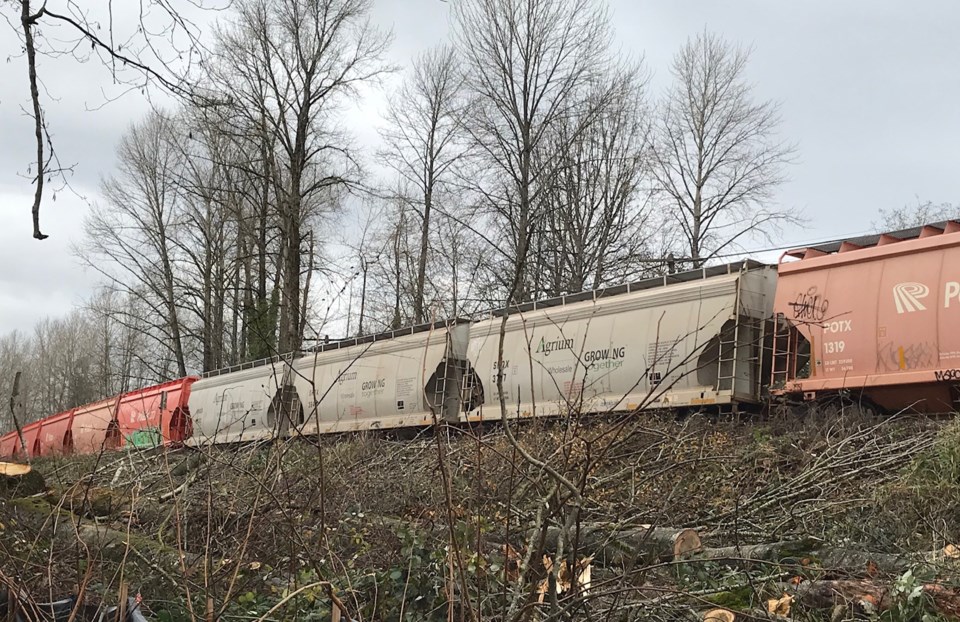The City of Delta is hoping to reduce the amount of whistling from trains through residential neighbourhoods.
During council’s discussion June 8 after a public hearing on the proposed high-rise the 9300-block of Scott Road, engineering director Steven Lan responded to a concern raised about the impact of train whistles in the area.
“We’re very active right now. We’re looking at forwarding this train whistle cessation initiative in this area,” he said.
Lan said Delta and Surrey are undertaking a joint initiative on train whistle cessation, having retained a consultant who recently produced a report that will be reviewed by civic staff.
He noted it’s anticipated the next steps include discussing potential railway crossing upgrades with Southern Railway of BC (SRY) and a report would then be coming to council.
Delta council last summer had also agreed to have staff review the status of the Ladner whistle cessation project with the Greater Vancouver Gateway 2030 Program as well as undertake a preliminary assessment of achieving whistle cessation in North Delta.
Staff noted that as per the train whistling requirements set out in the Canadian Railway Operating Rules, most trains are required to whistle for a 20-second warning before entering the crossing and continue to sound a whistle until the crossing is fully occupied.
The noise from train whistling has prompted a number of complaints from residents in North Delta and Ladner who have been seeking relief.
Delta has a number of railway corridors within its boundaries, with four railway companies operating within the city: BNSF Railway (BNSF), Canadian National (CN), Southern Railway of BC (SRY) and Canadian Pacific Railway (CPR).
The railway corridors fall under two different jurisdictions, federal and provincial.
The federally regulated lines are owned by BNSF and CN and these lines cross River Road at Centre Street in North Delta and throughout the Tilbury Industrial Park.
The provincially regulated lines are owned by SRY and BC Railway Company (BCRC) and these lines run through North Delta near Scott Road and 92 Avenue, throughout Annacis Island and from the Surrey/Delta border to Roberts Bank.
The staff report at the time noted that in North Delta, residents have frequently requested whistle cessation for the SRY crossings along Scott Road/Townline Node area and one BNSF crossing at River Road and Centre Street.
The report also noted staff have had preliminary discussions with SRY and they advised that Delta should work with the City of Surrey on a design as an initial step.
In Ladner, as part of Greater Vancouver Gateway 2030 Program, whistle cessation for the East Ladner crossings along Roberts Bank Rail Corridor were identified as a possible future project for federal grant funding.
Staff would also follow up with the Greater Vancouver Gateway 2030 Program on the status of the whistle cessation project and whether any additional information can be provided to enhance future funding opportunities.
Future capital expenses will be required for infrastructure upgrades at the crossings to achieve whistle cessation and there may be external funding opportunities including federal grants through the Rail Safety Improvement Program, as well as cost share opportunities with Surrey on the Scott Road crossings, the report added.
There’s also the possibility of identifying future development contributions to assist in funding future upgrades.
The report also explained that in addition to the one-time capital upgrade costs, liability insurance will also be required to meet whistle cessation requirements from the railway companies.



